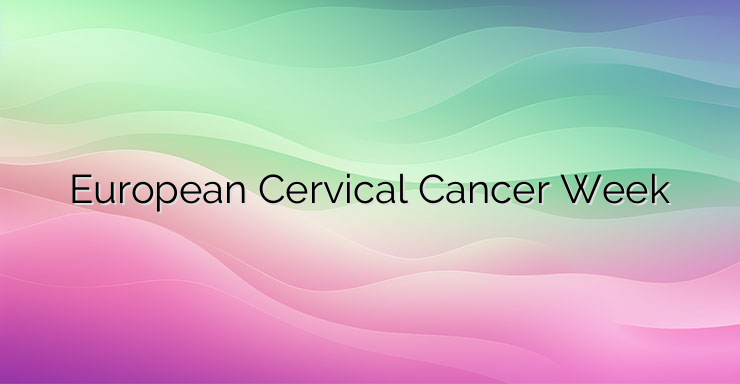For six years now, every last week of January has been marked as European Cervical Cancer Prevention Week. The European Cervical Cancer Prevention Week reminds us that every woman needs to be well informed and active in taking responsibility for her own health. Bulgaria occupies a leading place in terms of morbidity and mortality from cervical cancer among the member states of the European Union, second in order according to data from the World Health Organization, which equates it with the indicators of third world countries. Every year, 1,200 Bulgarian women are diagnosed with cervical cancer, and between 340-360 lose their lives. According to data from the National Cancer Registry, there is a serious trend of increasing the number of Bulgarian women suffering from cervical cancer – every year by 5% more. Bulgarian experts warn that for the last 20 years the age limit for this insidious disease has been significantly reduced, young women can be affected relatively soon after starting their sexual life. What is the problem with the control of this disease in our country? Until now, our experts and non-governmental organizations have highlighted the lack of a comprehensive preventive program for the population, a primary one by immunizing women against the main cause of cancer – the human papilloma virus (HPV) and a secondary one by conducting an organized mass screening, including at least half of Bulgarian women , which is carried out by regularly conducting a PAP test – pap smear. The combined efforts of specialists, the non-governmental sector and the commitment of the authorities to the problem crowned the first success regarding taking adequate measures against cervical cancer among Bulgarian women – at the end of last year it was decided that the HPV vaccine would be reimbursed by the National Health Insurance Fund. NEWS_MORE_BOX Thus, our country joined the other 22 countries of the European Union, in which the possibility of protection against cervical cancer is provided. Initially, the vaccination will be provided for all 12-year-old girls, for which 2 million BGN have been earmarked under the program of the Ministry of Health. Very soon after the decision of the executive and legislative authorities to reimburse HPV vaccination, anti-vaccination sentiments arose in our country. However, in order to actually exercise the right to choose, without blindly taking sides “for” and “against”, it is necessary to first ask ourselves what and whether we know enough about cervical cancer, the treatment of the disease and the ways to let’s protect… The usual response that vaccines are dangerous does not help us, especially when thanks to them, the public memory no longer remembers suffering from diseases such as measles, which humanity keeps at bay through immunoprophylaxis. It is a fact that in our country only 10% of Bulgarian women, according to a study by Alpha Research, define themselves as well informed about cervical cancer.There is a lack of awareness about the vaccine in general. Still, many people in our country do not make a connection between papilloma viruses and the development of cervical cancer… Nevertheless, we are afraid of vaccination against HPV, of the measure that will protect us instead of the life-threatening disease. The question is why? And isn’t it more reasonable, instead of succumbing to our fears in the 21st century, to look for an adequate answer to our questions… On these questions and more, wait for our interview with Lily Asenova, president of the National Association for the Prevention of Cervical Cancer .


Leave a Reply